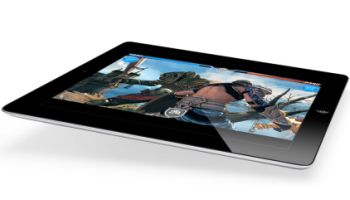Apple Looks To Sharp For iPad 3 Screen

Sharp is to provide Apple with screens for its HD retina displays on the iPad 3, as well as iPhones and iTVs
Apple continues to build up its list of equipment suppliers after it added Sharp to its roster of companies it uses to produce the popular iPad tablet, according to the Wall Street Journal.
The WSJ reported that Sharp will produce the LCD screens for the next-generation version of the device as Apple seeks to diversify the number of manufacturers it uses. The decision comes as Sharp looks to broaden its LCD business and Apple fights a number of patent suits with Samsung, which also supplies components for Apple’s products.
Equipment Purchases
“This would allow Sharp to count on a more stable sales volume and would help its technology gain more attention,” Mizuho Investors Securities analyst Nobuo Kurahashi told the WSJ, though he noted it would be “a stretch” to posit Apple’s move came from the legal troubles stemming from patent suits with supplier Samsung. Securities and investment banking group Jefferies said in a research note that Sharp will provide panels for iPads, iPhones and iTVs.
“We believe Apple has purchased $500m (£321m) to $1bn (£642m) in equipment, Sharp and Apple have modified the IGZO (indium, gallium, zinc) technology to make much-improved displays, and Sharp and Apple may jointly produce OLED panels with a new production technology that has led to significant yield improvements,” the company wrote.
“The Sharp relationship will enable Apple to diversify away from Samsung and gain additional display capacity with leading-edge technology,” it added. “Given Apple is fronting the capital spending, we also see these panels being procured at good prices, which means better-than-expected margins.”
Slavishly Copy
As alleged by Apple, Samsung has made its Galaxy phones and computer tablet work and look like Apple’s products through widespread patent and trade dress infringement. Apple claims Samsung has even misappropriated Apple’s distinctive product packaging.
“Instead of pursuing ind ependent product development, Samsung has chosen to slavishly copy Apple’s innovative technology, distinctive user interfaces, and elegant and distinctive product and packaging design, in violation of Apple’s valuable intellectual property rights,” the suit claims. “By this action, Apple seeks to put a stop to Samsung’s illegal conduct and obtain compensation for the violations that have occurred thus far.”
ependent product development, Samsung has chosen to slavishly copy Apple’s innovative technology, distinctive user interfaces, and elegant and distinctive product and packaging design, in violation of Apple’s valuable intellectual property rights,” the suit claims. “By this action, Apple seeks to put a stop to Samsung’s illegal conduct and obtain compensation for the violations that have occurred thus far.”
According to IT research firm IDC, Samsung grabbed the No. 1 worldwide smartphone position from Apple, selling more than 23 million units in the third quarter for the first time ever, fuelled by the phone maker’s new Galaxy S II line and handsets powered by its own bada platform. The company, which commanded 20 percent market share for Q3, sold over 10 million Android-based Galaxy S II handsets through April and October in a slow, country-by-country rollout.